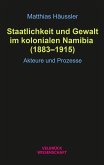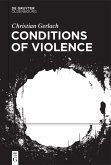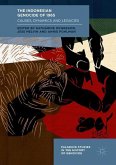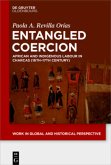Forged in Genocide traces the early history of colonial capitalism in Namibia with a central focus on migrants who came to be key to the economy during and as a result of the German genocide of the Herero and Nama (1904-1908). It posits that Namibia, far from being a colonial backwater of the early 20th century, became highly integrated into the labor flows and economies of West and Southern Africa, and even for a time was one of the most sought-after regions for African migrants because of relatively high wages and numerous opportunities resulting from the war's demographic devastation paired with an economic frenzy following the discovery of diamonds. In highlighting the life stories of migrants in Namibia from regions as diverse as the Kru coast of Liberia, the Eastern Cape of South Africa, and the Ovambo polities of Northern Namibia, this work integrates micro-history into larger African continental trends. Building off of written sources from migrants themselves and utilising the Namibian Worker Database constructed for this project, this book explores the lives of workers in early colonial Namibia in a way that has hereto not been attempted.
Hinweis: Dieser Artikel kann nur an eine deutsche Lieferadresse ausgeliefert werden.
Hinweis: Dieser Artikel kann nur an eine deutsche Lieferadresse ausgeliefert werden.
"The book is methodologically innovative in its use of archival and photographic evidence. Lyon utilizes a remarkable archive of the records of workers' deaths, which yields much rich detail about their life trajectories. He has also unearthed a stunning archive of photographs: a significant part of the book is devoted to the interpretation of these images, and this strategy is astutely, and sometimes brilliantly, executed, providing insights into work processes, racial relationships, and leisure activities.
Lyon presents an unsparing picture of colonial violence, but also a nuanced portrayal of workers as active agents, able to carve out spaces of creative activity for themselves." - Jonathan Hyslop (Colgate University, Madison County, NY) in H-Soz-Kult, 09.01.2025, https://www.hsozkult.de/publicationreview/id/reb-144936
Lyon presents an unsparing picture of colonial violence, but also a nuanced portrayal of workers as active agents, able to carve out spaces of creative activity for themselves." - Jonathan Hyslop (Colgate University, Madison County, NY) in H-Soz-Kult, 09.01.2025, https://www.hsozkult.de/publicationreview/id/reb-144936








